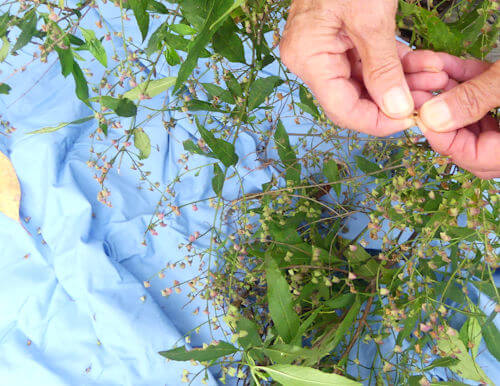A success story: Seed saved before Black Saturday Bushfires
West Gippsland Seedbank collected a large number of seeds from Labertouche Creek Reserve, not long before it was destroyed by the Black Saturday Bushfires.
West Gippsland Seedbank is pleased to play a part in revegetation within our region. By collecting local seed, we’re not only supporting new planting projects, but we’re also helping to preserve indigenous species. This was never clearer than at the time of the Black Saturday Bushfires.
In the spring of 2008, Melbourne Water asked West Gippsland Seedbank to collect seed from Labertouche Creek Reserve, so they could plant local, indigenous species in the adjacent land.
Labertouche Creek Reserve is one of our regular collection sites, and we were happy to help out. They placed an order with us for 3kg of seed, from 35 different indigenous species. As you can imagine, we spent most of the summer collecting seed for that particular order.
However, our collection was cut short by the horrific Black Saturday Bushfires in February 2009. The fires totally destroyed Labertouche Creek Reserve, and its valued indigenous plants.
West Gippsland Seedbank was fortunate to have collected a large number of seeds from the reserve in the weeks and months leading up to the bushfires. Some of the species we collected were Eucalyptus cephalocarpa (Silver Stringybark), Acacia oxycedrus (Spike Wattle), Acacia genistifolia (Spreading Wattle) and Prostanthera lasianthos (Victorian Christmas Bush). While these species are not rare, they are found only in certain areas of West Gippsland. With the parent plants lost to the fires, the seed we collected became even more precious.
Later that year, Melbourne Water carried out its direct seeding project in the land adjacent to the reserve, with the seed we collected.
The reserve recovered over time, but this tragic incident reminds our volunteers just how valuable their seed collection work can be.

